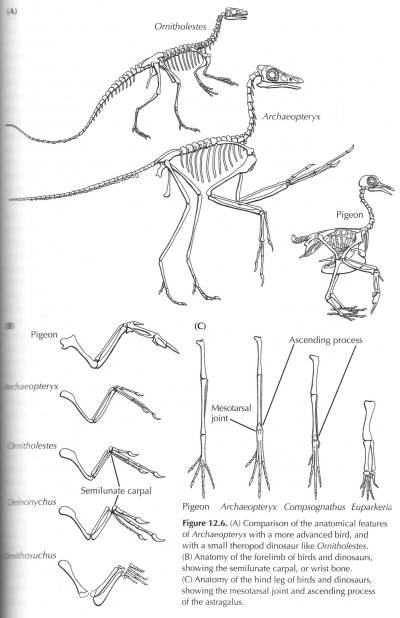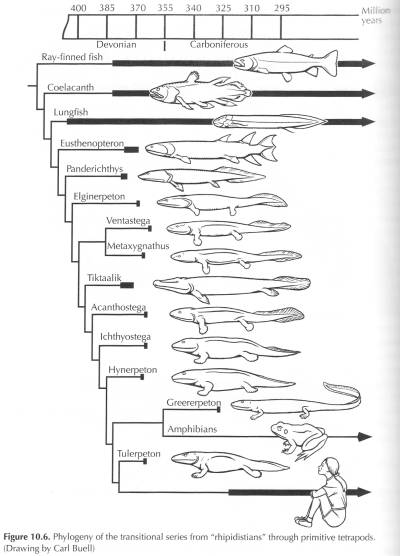Investigating a Few Claims from Global Warming Doubters
 This past weekend, I got into a discussion with a couple friends about global warming. This was a different group than the one that inspired this blog entry, Global Warming - It's Real, And We're Causing It. These two had several arguments against global warming, not just a general distrust of the science. Like I wrote in that other entry, I'm far from being an expert in climate science. I've kept up with it a bit, but I've mostly trusted that the actual experts know what they're talking about, and when they said that there's a very, very high probability that global warming is human caused, I believed them. Well, arguments from authority don't carry much weight when people are giving you specific reasons why they doubt a theory. So, I had to do a little deeper research into their claims.
This past weekend, I got into a discussion with a couple friends about global warming. This was a different group than the one that inspired this blog entry, Global Warming - It's Real, And We're Causing It. These two had several arguments against global warming, not just a general distrust of the science. Like I wrote in that other entry, I'm far from being an expert in climate science. I've kept up with it a bit, but I've mostly trusted that the actual experts know what they're talking about, and when they said that there's a very, very high probability that global warming is human caused, I believed them. Well, arguments from authority don't carry much weight when people are giving you specific reasons why they doubt a theory. So, I had to do a little deeper research into their claims.
Below is the response I sent to them via e-mail. Since it's so long, I'm not going to put it in blockquotes. Also, since I'm posting this on my blog, I'm not going to use their real names. But rather than calling them John Doe I and John Doe II, I'll go with the first names from Comedy Central's news hour, John and Stephen.
[start of e-mail]
John & Stephen,
John, I know you're used to these e-mails. Stephen, this is just what I do after discussing something controversial - backing up what I said with a few references and doing a little more research. It looks like you do about the same - [my wife] gave me the articles you found.
Okay, first I guess I'll try to cover a few of the things we discussed over the weekend. There were a few points brought up that stuck out to me: 1) CO2 is not a greenhouse gas, 2) 30 years ago climatologists were predicting an ice age, while now they're predicting global warming, so how can we trust what they're saying, 3) Current data indicates that we're actually headed into a cooling period, 4) Mars ice caps are melting, indicating that increased solar activity is responsible for the recent warming trend, and 5) Sensors used to take measurements of polar ice were flawed, so we can't trust those measurements. I probably got a few of those wrong, mixed up a few with claims I've read on the Internet, and there are probably a few that I forgot, but that's mostly what I remember. So, I tried looking up those claims and here's what I came up with.
1) CO2 is not a greenhouse gas.
I guess you already looked this up, Stephen, since you wrote on the printouts you gave [my wife] that CO2 actually is a greenhouse gas. Just to give a little information for John, though, here's some more info, mostly summarized from Wikipedia (http://en.wikipedia.org/wiki/Greenhouse_effect). Most of the electromagnetic radiation the sun emits is in the visible spectrum. Greenhouse gases, pretty much by definition, don't absorb light in the visible spectrum, so most of the radiation from the sun makes it all the way to the surface of the Earth. There, it does get absorbed by numerous objects. As these heat up, they will radiate some of that energy back out in the infrared spectrum. Now, greenhouse gases, again pretty much by definition, do absorb light in that spectrum. So, the gases absorb that infrared radiation and heat up. Some of that heat will be transferred to surrounding gases, with some of it eventually making it back down to the ground. Some of it will be radiated back out in all directions - some back towards the ground, and some out into space. So, the net result of having greenhouse gases in an atmosphere is that the temperature of the planet will be higher.
The main greenhouse gas in our atmosphere is water. It provides around 36% of the heating. Next comes carbon dioxide, at around 9%. It's a little difficult to calculate how much heating each gas provides, since they interact with each other. For example, if you remove all the CO2 and water from the atmosphere, we would lose more than 45% of the greenhouse heating.
Here's another link, showing the actual absorption spectrum of CO2, and giving a more detailed explanation of how the absorption works on a molecular level:
http://www.wag.caltech.edu/home/jang/genchem/infrared.htm
There are other greenhouse gases, as well. Some are more effective on a pound for pound basis (such as methane). However, because their concentrations are so much lower, their total effect isn't as great.
One argument I have heard, is that carbon dioxide may be a result of warming - that some mechanism causes more CO2 to enter the atmosphere as the temperature increases. This argument is usually in response to the historical trend of global temperature vs. CO2. However, we can be pretty darn sure that much of the reason CO2 levels are rising right now is because of people burning fossil fuels. All that carbon was sequestered underground, and we're releasing it faster than it can be sequestered again. So, knowing that CO2 is definitely a greenhouse gas, if there's a mechanism that causes CO2 levels to rise with temperature, it's a feedback that's going to make the current situation worse.
2) 30 years ago climatologists were predicting an ice age, while now they're predicting global warming, so how can we trust what they're saying.
I wasn't paying much attention to climate science 30 years ago, so I can't speak to this directly. I do know that the way the media currently presents science is pretty bad. Look how much the media hyped the recent announcement of finding methane on Mars and how it could be indicative of life. The reality is that the current scientific consensus is much more conservative - it may be life, but there are many other possibilities it could be, and we just won't know until we get more data. So, if science reporting 30 years ago was anything like it is today, I could easily see the media playing up reports far more than what was the actual scientific consensus.
I found a fairly recent paper in the journal of the American Meteorological Society doing a literature search on climate research during the 60s and 70s. They found that a small minority of papers predicted global cooling, but that the majority actually were predicting global warming even then. So, it appears that the scientific consensus on global warming hasn't changed in the past 30 years, and has just gotten stronger. Here's a short blog entry describing the paper, which also has a link to the full paper:
http://www.realclimate.org/index.php/archives/2008/03/the-global-cooling-mole/
3) Current data indicates that we're actually headed into a cooling period.
For your reference, John, here's one of the articles Stephen printed out for me:
http://www.dailytech.com/Temperature+Monitors+Report+Widescale+Global+Cooling/article10866.htm
My main take of that article is that there's not enough information in it to predict that we've actually started a cooling trend. Average global temperature is influenced by quite a few factors, and thus fluctuates quite a bit from year to year. Global warming doesn't predict that every year will be warmer than the last, only that the trend is to higher temperatures. Just look closely at the graph they've provided. Several other periods show similar valleys, quickly rebounding to higher temperatures. Maybe this recent drop was the biggest, but not by a lot. Unless these temperatures stay low for a longer period than previous valleys, there's no reason to believe that this is a long term trend.
The only mechanism the article gives for why temperature might be decreasing is "reduced solar activity." Looking at the article linked to in the original article, the mechanism claimed seems to be the Sun's magnetosphere shielding Earth from cosmic rays, and the effect that has on cloud formation. The solar activity being described is not the solar irradiance. If solar irradiance were decreasing, I would fully expect that would decrease the Earth's temperature. How could it not? But actual measurements of solar irradiance show it to be pretty darn constant. It does vary slightly over an 11 year cycle (same as sun spots), but that variance is only ±0.65 W/m² about a 1366 W/m² average, or about 0.1% total variance.
http://en.wikipedia.org/wiki/Solar_variation
Hmm, I just found another record of solar irradiance in the NASA link a few paragraphs below. It looks like the current valley in solar irradiance is a little lower than the previous two valleys, but still not very far off from the average - maybe abut 0.15% total variation. It looks like we're right about at the minimum, and getting ready to start receiving more energy from the Sun again.
The links between other properties of the Sun and Earth's climate are more tenuous. I've seen a few studies claiming such links, but none that seem to hold up to scrutiny from other scientists. If either of you could send something showing a strong link, I'd be interested in reading it. That same Wikipedia article linked above discusses some of these proposed correlations:
http://en.wikipedia.org/wiki/Solar_variation#Global_warming
This article also addresses proposed correlations:
http://www.realclimate.org/index.php?p=180
As far as what could have caused the cooling, it looks like it my be due mainly to La Niña. NASA's Goddard Institute has a good discussion of this:
http://data.giss.nasa.gov/gistemp/2008/
I also found a report from June of last year that predicted this cooling. According to the link below, most climate models ignore short term effects such as El Niño and La Niña. For long term forecasts, they're not that important. For short term forecasts, however, they can have big impacts. The authors incorporated ocean currents into their model to give more short term predictions, and as I already said, they predicted the recent cooling.
http://www.ifm-geomar.de/index.php?id=4192&L=1
4) Mars ice caps are melting, indicating that increased solar radiation output is responsible for the recent warming trend.
The solar irradiance trends linked above show that the melting of Mars ice caps definitely isn't due to solar radiation, since solar irradiance hasn't changed by more than a fraction of a percent, and has actually been on the downward side of the cycle for the past few years. I'm not sure what other properties of the Sun would influence the ice caps on Mars.
A National Geographic news clip on this mentions that a Russian scientist, Habibullo Abdussamatov, thinks increased solar irradiance is heating both planets (again - see the actual measured solar irradiance in the Wikipedia link), but other scientists offer explanations for other factors that drive Mars' climate, including that the wobble of it's tilt axis is more pronounced than Earth's.
http://news.nationalgeographic.com/news/2007/02/070228-mars-warming.html
Wikipedia also has a section on this. The consensus seems to be that no one's exactly sure what's causing the Martian ice caps to melt, but it seems to be a local climate phenomenon, not a global one. With Mars' thin atmosphere and lack of oceans, it doesn't have the same thermal buffers as Earth, so smaller phenomena can have a larger effect. It mentions that dust storms could have darkened the ice caps, increasing the amount of solar energy they absorb, causing them to melt faster.
http://en.wikipedia.org/wiki/Climate_of_Mars#Evidence_for_recent_climatic_change
Here's another article discussing the southern Martian ice cap:
http://www.realclimate.org/index.php?p=192
I guess the short of it is, although people have hypotheses, no one's exactly sure what's causing Mars' ice caps to melt, because it's another planet that we haven't been able to study in enough detail to know the intricacies of what drives its climate. Although the solar irradiance argument put forth by Abdussamatov is almost certainly wrong.
5) Sensors used to take measurements of polar ice were flawed, so we can't trust those measurements.
To be honest, I'm not sure exactly which measurements you were talking about. I did see a mention of something in a recent entry on Carl Zimmer's blog (he happens to be one of my favorite science writers). Was this what you were referring to?
http://blogs.discovermagazine.com/loom/2009/02/22/a-wrinkle-in-ice-or-not/
I still don't know as much about global warming as I do about other fields, but the more research I do, the more confidence I have in the science. But, I could still be wrong. Keep sending me articles you think show global warming to be wrong. If it is, I'll change my view eventually. If the scientists are right, though, then the next thing to discuss is what to do about it. Do we even try to reduce our carbon output, or do we just adapt to any changes global warming causes? Personally, I think it will be somewhere in between. Trying to eliminate carbon output cold turkey would be more costly than adapting to the changes from global warming. But not doing anything about carbon output and focusing solely on adaptation would probably be more expensive than a little up front cost on energy research right now.
-Jeff
[end of e-mail]
If I get any responses from them that show anything I wrote to be wrong, I'll be sure to add it here. I also let both of them know that I was putting a copy of this here on my blog, so maybe they'll post their comments here.

 Depending on where you are in the world, you may call tomorrow something else, like Mardi Gras, Shrove Tuesday, or Pancake Day. But from where I'm from in Pennsylvania, it's called Fastnacht Day. Traditionally, you make potato based donuts, called fastnachts, supposedly as a way to empty your larder of all the fatty, sugary foods in preparation for the Lenten fast. My elementary school even used to give out donuts with the lunches on this day. So, in celebration of Fastnachts, here's
Depending on where you are in the world, you may call tomorrow something else, like Mardi Gras, Shrove Tuesday, or Pancake Day. But from where I'm from in Pennsylvania, it's called Fastnacht Day. Traditionally, you make potato based donuts, called fastnachts, supposedly as a way to empty your larder of all the fatty, sugary foods in preparation for the Lenten fast. My elementary school even used to give out donuts with the lunches on this day. So, in celebration of Fastnachts, here's 



 Today is the 200th birthday of Charles Darwin, the man who presented evolution in such a way and with sufficient evidence that it became obvious that it was the explanation for how life developed on this planet. Others had ideas of transmutation before Darwin, and Alfred Russel Wallace even came up with a theory of natural selection very similar to Darwin's at around the same time, so it's apparent that humanity would have eventually recognized how evolution works. But Darwin's genius in presenting all the evidence for evolution in the way he did certainly gave the field a huge head start.
Today is the 200th birthday of Charles Darwin, the man who presented evolution in such a way and with sufficient evidence that it became obvious that it was the explanation for how life developed on this planet. Others had ideas of transmutation before Darwin, and Alfred Russel Wallace even came up with a theory of natural selection very similar to Darwin's at around the same time, so it's apparent that humanity would have eventually recognized how evolution works. But Darwin's genius in presenting all the evidence for evolution in the way he did certainly gave the field a huge head start. Well, I may have missed making any blog entry last week, and completely missed updating the non-blog portion of my site last month, but I can at least put up something today. Here's the list of the top 10 most popular pages from my site for last month. No surprises for this month - the list's pretty much the same as months past.
Well, I may have missed making any blog entry last week, and completely missed updating the non-blog portion of my site last month, but I can at least put up something today. Here's the list of the top 10 most popular pages from my site for last month. No surprises for this month - the list's pretty much the same as months past.